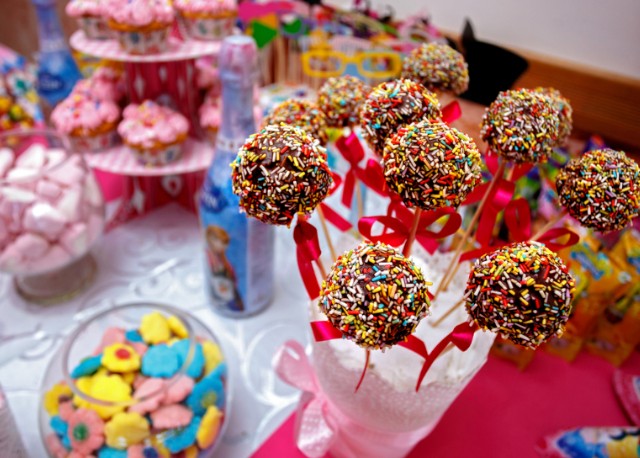Birthday Celebration with a Glorious Cake: Why Do Sweets Keep Flooding Kindergartens?
At the beginning of the year, the Ministry of Education issued directives for healthy eating in kindergartens. Nevertheless, in reality, children continue returning from kindergartens laden with snacks and sweets, frequently.
 (Photo: shutterstock)
(Photo: shutterstock)At the start of the school year, a directive was issued stating that in kindergartens, at events like birthday parties, only fruits and vegetables should be served, not sweets. However, in practice, this is not enforced, and most kindergartens maintain a menu that includes sweets, cakes, sugary drinks, and snacks.
Often, this situation turns into a competition among parents over who can bring more special, richer, and, of course, sweeter treats. Parents wanting to maintain healthy eating habits find themselves at a loss because there is no oversight in kindergartens, and children come home with large amounts of sweets.
Awareness of proper nutrition has been growing in recent years. Both parents and kindergarten teachers know how important a healthy diet is, especially during early childhood. This is precisely why the Ministry of Education issued directives instructing parents not to send sweet drinks, snacks, or sweets with their children to kindergarten. Even on birthdays, parents are advised to serve only fruits and vegetables and water instead of sugary drinks. The only "approved" sweet is a birthday cake, and even here, the Ministry of Education recommends holding joint birthday parties for several children at a time to reduce the amount of cakes consumed.
Nonetheless, many parents claim that children continue to receive large quantities of sweets in kindergartens at various events - Shabbat receptions, birthdays, and other occasions. It is no wonder then that parents struggle to instill values of healthy eating in their children. According to the parents, the kindergarten teachers do not enforce the rules set by the Ministry of Education. However, the teachers argue that it is the parents who pressure them to allow sweets at every opportunity.
 (Photo: shutterstock)
(Photo: shutterstock)In reality, birthday parties have turned into much more than just one or two sweets. In many kindergartens, even those that do serve healthy vegetables at birthday parties, sweet pastries, sandwiches with sweet spreads that aren't healthy, sugary drinks, and more are also served. Parents report that during every Shabbat reception, children return with at least one sweet. In some kindergartens, parents are shocked to discover that their children receive a sweet at almost every gathering.
Lily Pokmonsky, head of the preschool department at the Teachers' Union, mentioned in an interview that parents pressure teachers to allow birthdays and other events with sweets. Dr. Avigail Friedman, head of early childhood education at Efrata College, also stated that teachers need to create an open dialogue with parents to establish appropriate norms for kindergarten events. "For the child, the emotional aspect— the attention they receive— is what's important, not the gifts, sweets, or other material aspects of birthday celebrations. An abundance of sweets only breeds envy and competition."
According to Dr. Rali Evel, manager of the Nutrition and Diet Unit at Clalit Health Services, Central District, many events are held at kindergartens which lead to children being exposed to unusual foods at least twice a week. The sweets and snacks, she says, are filled with trans fats and high in sugar, potentially causing health damage to children in the future.
However, the change in nutrition at events in kindergartens should be gradual, otherwise, parents and teachers might not comply, according to the municipal parents' forum.

